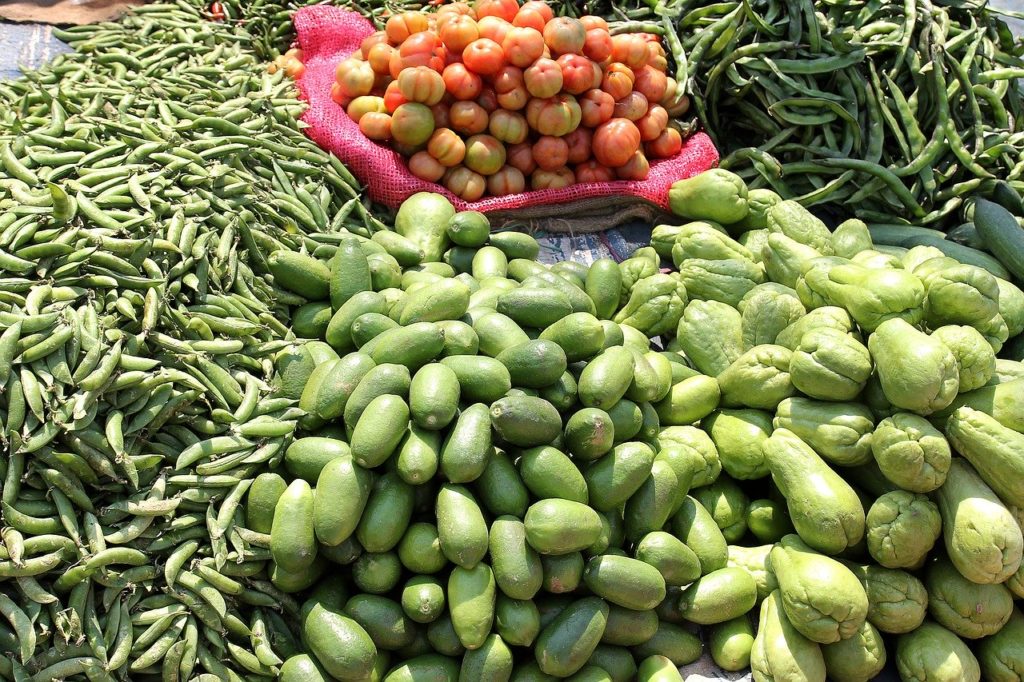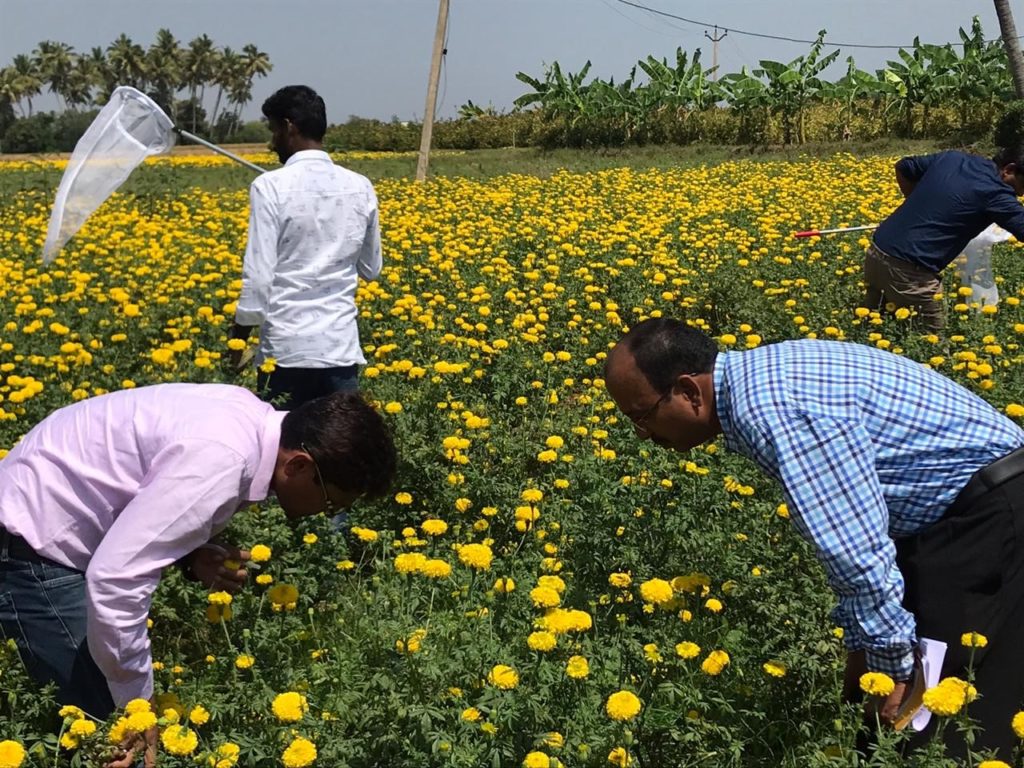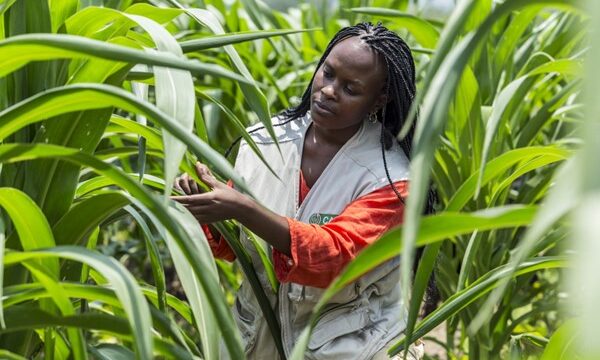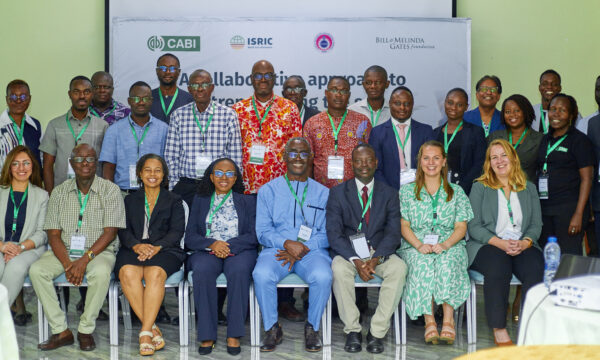
Today’s world faces immense challenges in food production, making availability, quality, nutrition and affordability the main agenda in many developing countries, writes Dr Babar E Bajwa, Regional Director, CABI Central West Asia. Agricultural research has moved on from the task of ensuring availability of food towards attaining a successful food system that is perceived as a source of value to members of society (especially small land owners, women and children) who depend on these systems as their only source of survival.
The regions in which CABI works are mostly dominated by smallholders who have very limited access to resources, are limited in their decision making and have limited inclusion in food systems. In addition to this, environmental conditions and soil (as a basic unit of production) bring new challenges to them. We never thought 50 years ago that we would be dealing with such a complex interface of biotic and abiotic factors (those that are living and non-living parts of the environment), which need a complex, intensive, scientific and, above all, coordinated and interdependent approach in order to be addressed.
Looking at this set of challenges in more detail, one of the main problems that has arisen since the green revolution (the adoption of modern methods and technology) is the intensive use of agro-chemicals, especially plant protection product use, which determines how many chemicals we put into food systems.
It is for this reason, among others, that CABI initiated Plantwise – a global programme that works to help farmers lose less of what they grow to plant health problems. Working closely with national agricultural advisory services, we establish and support sustainable networks of plant clinics, run by trained plant doctors (extension workers), where farmers can find practical plant health advice.

The plant clinics are reinforced by the Plantwise Knowledge Bank, a gateway to practical online and offline plant health information, including diagnostic resources, best practice pest management advice and plant clinic data analysis for targeted crop protection. Together, these two unique resources are part of the Plantwise integrated approach to strengthening national plant health systems from within by bringing the stakeholders who play a role in delivering knowledge to farmers together in a single approach.
This approach to plant health system development supports the long-term sustainable agricultural production of the country in which it is applied. The stronger the national plant health system, the better equipped the country will be to help farmers provide a safe and sustainable food supply and improve their livelihoods.
One of the main challenges for the Plantwise programme was to ascertain how much ability and resilience was available within food systems to diagnose a plant health problem. Then the programme had to decide how a knowledge-based approach could be developed to transfer the diagnostic and knowledge-based national system within the governments that support the development of resilience within the agriculture departments of countries.
We have spent almost 10 years developing the system. Over this period of time, especially in South Asia, we witnessed an increased appetite for quick fixes in agricultural systems, especially, when we did not consider the typical environment and plant-environment complex – the extension service providers tried to fix plant health issues in a non-holistic approach.
How modern research connects with problems
It is a very fair topic of discussion to talkabout how organizations like the International Centre for Biosaline Agriculture (ICBA), CABI and many other institutions, have such an important, valuable and up-hill task in putting research into action and building resilience in systems which can bring a heathy food system.
As an organization, we focus on problem solving through research – a principle that stays at the centre of our work flows. We have been able to bring out laboratory technologies to the field. I describe this as being ‘Actionable, Demonstratable and Adaptable’ Research. One of our global accomplishments has been our ability to talk about food crop protection as a systematic process, rather than an activity.
How CABI tries to connect with food systems
What we now see, coming up from the field, is a growing appetite for eco-friendly technologies like bio-control in both pests and micro-organisms. CABI has built a strong scientific pool of these bio-control approaches with more than 6,500 natural enemy collections and a collection of over 30,000 living strains from 142 countries, of which 90% are unique to CABI. It is one of the world’s largest genetic resource collections and holds the UK’s National Collection of Fungus Cultures, which most notably includes Fleming’s penicillin-producing isolate.
Our regional centres continue to work together to bring out lab research and trickle it down to farmers in many ways; be it for building the capacity of national extension services, import export agencies, phytosanitary risk management approaches, or using natural enemies field reservoirs for 55,000 cotton farmers or with corporates like Ingredion to support developing a-toxigenic strains which make the food healthy and safe. The partnerships are the most important driving factor.
We partner with national and international agencies based on scientific and research strengths. Now I can see how the business systems and markets need to be connected with this kind of approach, as today’s farming value chains are no more ‘just’ farming or marketing. A lot has been added in between both ends of the chain. The steps we take are small, but aim to connect with both ends of the agricultural value chain so that, overall, the sustainability scale is much higher. Linking science to a smallholder is not easy, but being science backed and building on a knowledge base, these technologies will pave the future of agriculture and food systems.
Additional information
Dr Babar E Bajwa is a postharvest technologist and good agricultural practices expert. He is the Regional Director for Central and West Asia where he has a number of ongoing projects and programmes. He also performs financial and performance management of the organisation, and delivers performance as per various bilateral and multilateral donor commitments.
He has around 20 years of professional experience. This includes, intensive experience as an agribusiness specialist while extensive and diversified experience in areas of food safety, SPS, post-harvest, agribusiness, supply chain development, trade and investment promotion. Dr Bajwa has also worked for developing agricultural markets through trade promotions and bilateral negotiations. His recent experiences include working with federal and provincial governments of various countries, the World Bank, UKAID, ACIAR, GIZ, USDA and USAID. Throughout my career he has made collaborations with various implementing partners in order to mobilise resources.
Related News & Blogs
Strengthening the potato value chain in the Kurdistan Region of Iraq
On 30th May, we marked the International Day of Potato. In this blog, CABI’s Crop Health Advisor Anna Wood provides an update on a five-year project led by CABI to strengthen the potato value chain in the Kurdistan Region of Iraq. An ambitious five-yea…
3 June 2025




